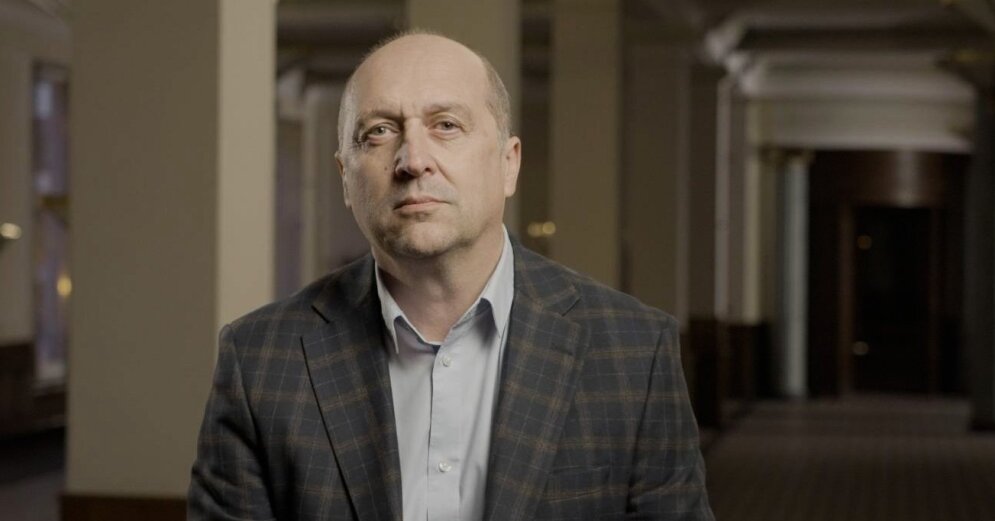During the national holiday month of November, director Viesturs Kairiš’s new film “January” came to the big screens, the story of growing up of a young cinematographer in January 1991, so important for the country of Latvia. In anticipation of the film and celebrating the independence of Latvia, we present eyewitness stories from the time of the barricades of those who say that the film “January” is about them. Because the story exists not only in historical monographs, but also in its retelling, but the stories help to “travel back in time” – to the life that happened 30 years ago and about which these people tell their children these stories. In the eighth episode – Kaspars Odiņš, journalist, screenwriter and childhood friend of director Viesturs Kairiš.
The content will continue after the announcement
Advertising
“Exactly the mood evoked, the emptiness, the grayness and that feeling of freedom”
In the early 1990s they were three friends – Kaspars, Viesturs and Eduards – united by an interest in cinema. All three studied at the Faculty of Philology of the University of Warsaw. “We met by chance on the faculty stairs and quickly found common interests, started meeting, looking for films, watching them,” recalls Kaspar. “We were fascinated by European classics – Godard, Trifo, Fassbinder, Wenders, we were also fascinated by Russian independent cinema, Kazakh, Czech new wave, we were interested in literature, and so there was a lot to talk about and a lot to watch” , says Kaspars Odiņš.
The film is presented as an autobiographical historical excursion during the barricades of 1991, heralding new cinematographers. And Viestur Kairiss he has repeatedly stated that it is not an autobiographical film in the classical sense, but rather an emotionally autobiographical one, and he knows the characters in the film well. On the other hand, Kaspars Odiņš admits that while he was watching the film “January”, he recognized himself in several characters of the film.
Kaspars himself was busy with photography at that time. He had a Zenit JT camera, he could already buy Kodak film, he had bought the book “Chemistry in photographic laboratories” at a high price. He himself mixed chemicals at home on pharmacy scales, developed photographic film, experimented.
“The film very accurately evoked a mood, emptiness, grayness, fewer people and fewer cars on the streets. And that feeling of freedom, which was kind of wild, and risk, which was also so wild , reckless – to go and film the Omonians. Yes, we were also wandering, and they were right next to us,” recalls Kaspars.
Time travel. January 1991
January 1991 was a month that the generations who lived it always remember and tell about. They can tell this time in months, weeks or hours.
In Riga, OMON fighters occupied the press room on January 2, paralyzing the publication of press releases. On January 7, following the order of Mikhail Gorbachev, Dmitry Yazov issued an order to send airborne troops to Latvia, Lithuania and Estonia under the pretext of joining the USSR Armed Forces. In those January weeks, Riga TV broadcast the 26th lesson “What’s the date?” of the English teaching program “English for you”, and the 1st All-Union program of the “Octopus-4” series. The beginning of the 1990s was a “turning point” in the history of Latvia, when the coming-of-age story took place for those who were pupils and students at that time and who in various forms shape the Latvia of today.
Viesturs Kairis’ new feature film “January” is a personal story of director Viesturs Kairis, who was 19 at the time and who claims to know the characters in his film, even if they are fictional. He says: the film is about the beginning, the first month of the year, when we all chose freedom.
“January” is a historical and autobiographical excursion during the 1991 barricades about young filmmakers involved in the January 1991 political events in Riga.
The film has been shown in cinemas across Latvia since 11 November.


